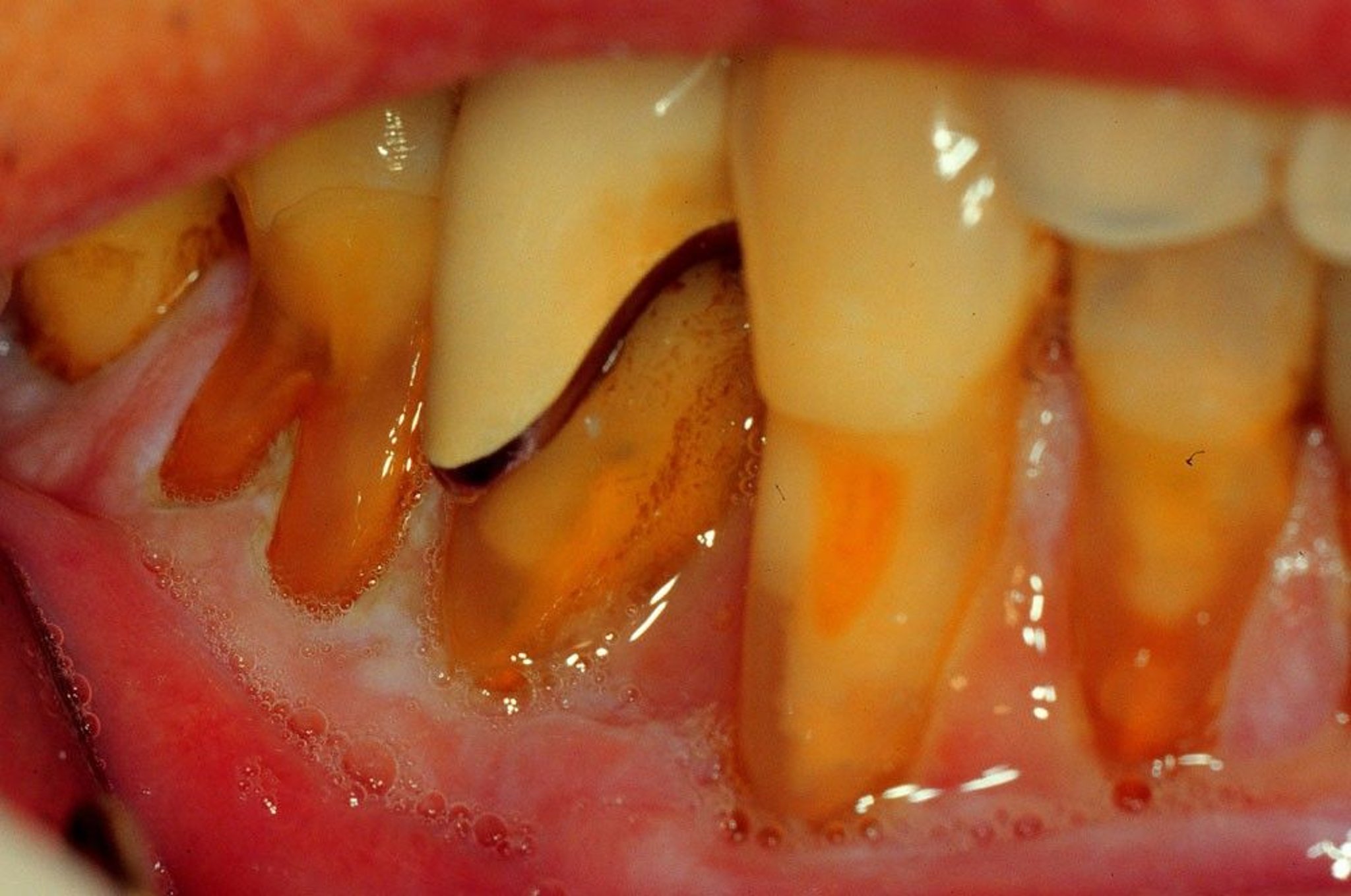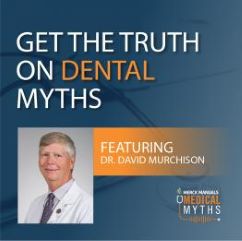Gum recession is the loss of tissue at the gumline with exposure of the root of the tooth.
Topic Resources
Recession usually occurs in thin, delicate gum tissue or in response to overaggressive toothbrushing or harsh toothpastes, such as those for whitening and tartar control. It can also result from injury or, often, the natural aging process. Most people have some slight recession.
Photo provided by Jonathan A. Ship, DMD.
Recession may also result in teeth very sensitive to cold, to sweet foods, or to touch. It may be accompanied by bone loss and may make the teeth more vulnerable to root cavities.
Treatment of Gum Recession
Desensitizing toothpastes for sensitive teeth
Special toothbrushing technique
Sometimes a grafting procedure
Treatment of gum recession is needed when the gums or teeth lose the thick band of tissue that helps protect the underlying bone. Treatment is also needed when plaque (a filmlike substance made up primarily of bacteria) accumulates, results in swollen bleeding gums, and is difficult to remove.
For people with mild recession or sensitivity, dentists may apply a substance that makes the teeth less sensitive. They advise people to use a desensitizing toothpaste or other gentle toothpaste that does not contain the harsh abrasives present in common tartar control or whitening toothpastes. People are also instructed to use a soft-bristle toothbrush and a special brushing technique that helps clean the teeth at the gumline. The technique involves gently moving the bristles back and forth at a 45-degree angle to the teeth. Such measures keep the recession from worsening but do not cure it.
For people with more severe recession, treatment involves a grafting procedure, in which soft tissue from the roof of the mouth or commercially processed donor skin tissue is stitched to the problem area.
More Information
The following English-language resources may be useful. Please note that THE MANUAL is not responsible for the content of these resources.
Mouth Healthy: This general resource provides information on oral health, including nutrition and guidance on selecting products that carry the American Dental Association's seal of approval. There is also advice on finding a dentist and how and when to see one.
National Institute of Dental and Craniofacial Research: This government site covers a wide variety of topics related to oral and dental health (in English and Spanish), including definitions of common terms and the latest information on clinical trials related to oral and dental diseases.



